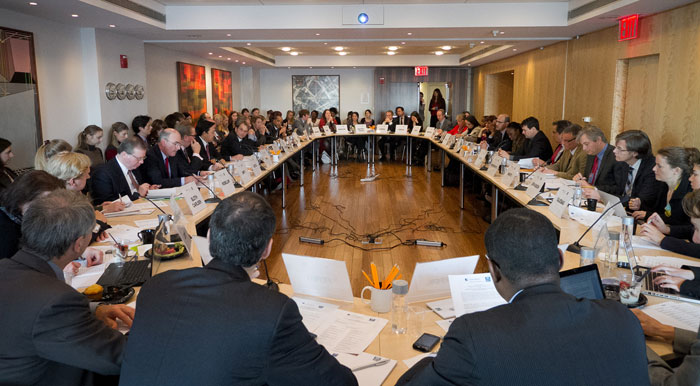
A recent roundtable discussion at IPI titled “Strengthening International Environmental Governance: Exploring System-Wide Responses” considered reform options for international environmental governance (IEG) in the context of the Belgrade Process, the Nairobi-Helsinki Outcome and the upcoming UN Conference on Sustainable Development (Rio+20) summit. The December 14th meeting, held by IPI and the Nordic Council of Ministers of the Environment, represents a continuation of discussions on comprehensive and coherent options for IEG reform.
The participants—representatives from the United Nations, UN member states, and academia—offered a combination of practical, political, and theoretical insights. The half-day event featured presentations on the current challenges facing IEG and multilateral environmental agreements (MEAs), which were followed by a discussion. In addition, practitioners gave a thorough summary of how IEG is being implemented in the field, and how national level concerns should be taken into account during Rio+20 negotiations next year.
Three major threads emerged during the discussion:
- Conversation around process tended to focus an eye forward towards Rio+20 and how best to ensure progress next June, as well as what states and policy-makers should see as ideal in terms of an IEG architecture and how it relates to organizational management, both in terms of the normative and operationally.
- Participants also spent a lot of time on coherence, discussing both coherence between different aspects of IEG and broader efforts by the international system and coherence between the global architecture and local and national implementation.
- Finally, participants discussed the pros and cons of consolidation of previous IEG outcomes, with particular attention paid to finding synergies within MEA clusters.
The discussions were held under the Chatham House rule of non-attribution.







